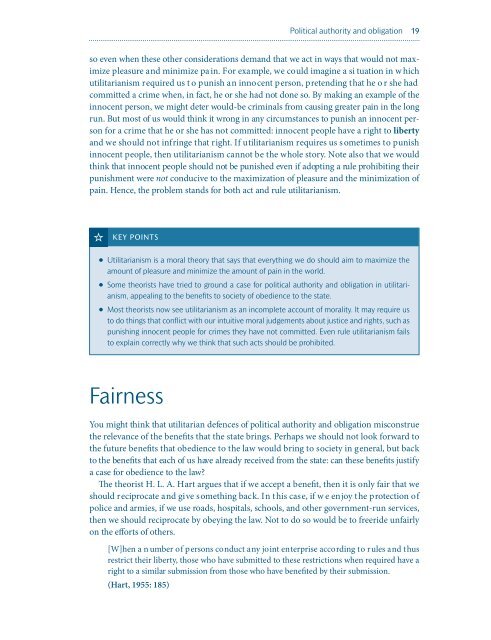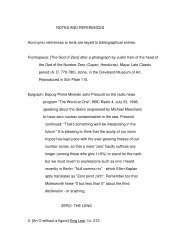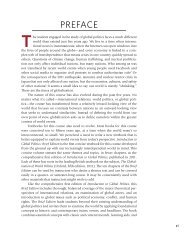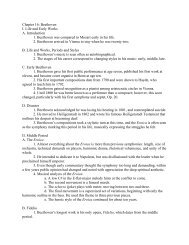1 Political authority and obligation Political authority and obligation
1 Political authority and obligation Political authority and obligation
1 Political authority and obligation Political authority and obligation
Create successful ePaper yourself
Turn your PDF publications into a flip-book with our unique Google optimized e-Paper software.
<strong>Political</strong> <strong>authority</strong> <strong>and</strong> <strong>obligation</strong> 19<br />
so even when these other considerations dem<strong>and</strong> that we act in ways that would not maximize<br />
pleasure <strong>and</strong> minimize pa in. For example, we could imagine a si tuation in w hich<br />
utilitarianism required us t o punish an innocent person, pretending that he o r she had<br />
committed a crime when, in fact, he or she had not done so. By making an example of the<br />
innocent person, we might deter would-be criminals from causing greater pain in the long<br />
run. But most of us would think it wrong in any circumstances to punish an innocent person<br />
for a crime that he or she has not committed: innocent people have a right to liberty<br />
<strong>and</strong> we should not infringe that right. If utilitarianism requires us s ometimes to punish<br />
innocent people, then utilitarianism cannot be the whole story. Note also that we would<br />
think that innocent people should not be punished even if adopting a rule prohibiting their<br />
punishment were not conducive to the maximization of pleasure <strong>and</strong> the minimization of<br />
pain. Hence, the problem st<strong>and</strong>s for both act <strong>and</strong> rule utilitarianism.<br />
KEY POINTS<br />
● Utilitarianism is a moral theory that says that everything we do should aim to maximize the<br />
amount of pleasure <strong>and</strong> minimize the amount of pain in the world.<br />
● Some theorists have tried to ground a case for political <strong>authority</strong> <strong>and</strong> <strong>obligation</strong> in utilitarianism,<br />
appealing to the benefi ts to society of obedience to the state.<br />
● Most theorists now see utilitarianism as an incomplete account of morality. It may require us<br />
to do things that confl ict with our intuitive moral judgements about justice <strong>and</strong> rights, such as<br />
punishing innocent people for crimes they have not committed. Even rule utilitarianism fails<br />
to explain correctly why we think that such acts should be prohibited.<br />
Fairness<br />
You might think that utilitarian defences of political <strong>authority</strong> <strong>and</strong> <strong>obligation</strong> misconstrue<br />
the relevance of the benefi ts that the state brings. Perhaps we should not look forward to<br />
the future benefi ts that obedience to the law would bring to society in general, but back<br />
to the benefi ts that each of us have already received from the state: can these benefi ts justify<br />
a case for obedience to the law?<br />
Th e theorist H. L. A. Hart argues that if we accept a benefi t, then it is only fair that we<br />
should reciprocate <strong>and</strong> give something back. In this case, if w e enjoy the protection of<br />
police <strong>and</strong> armies, if we use roads, hospitals, schools, <strong>and</strong> other government-run services,<br />
then we should reciprocate by obeying the law. Not to do so would be to freeride unfairly<br />
on the eff orts of others.<br />
[W]hen a n umber of persons conduct any joint enterprise according to rules <strong>and</strong> thus<br />
restrict their liberty, those who have submitted to these restrictions when required have a<br />
right to a similar submission from those who have benefi ted by their submission.<br />
(Hart, 1955: 185)

















